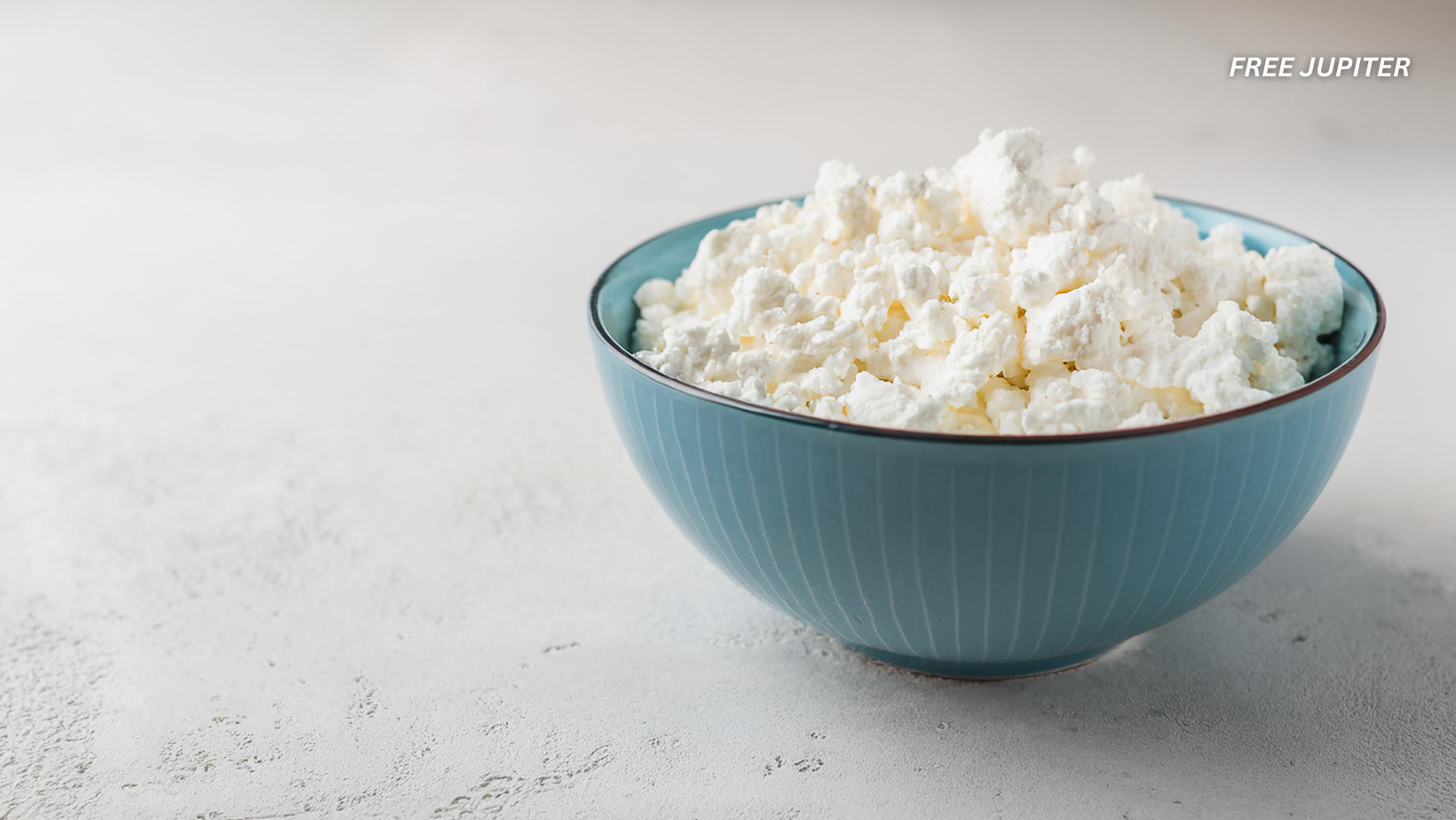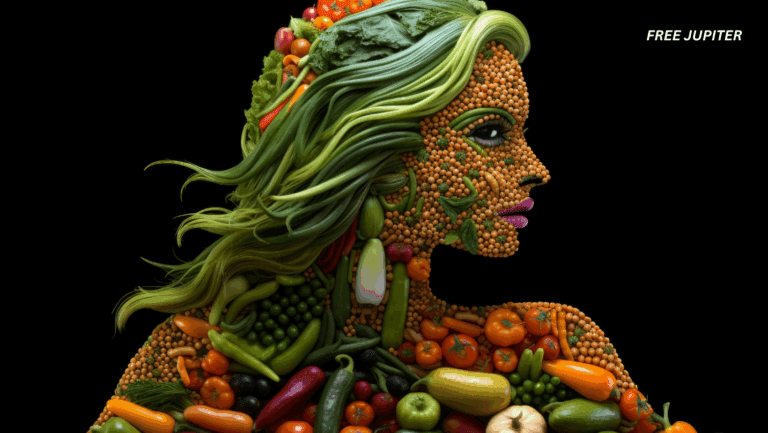Cottage cheese might not be the trendiest food on your plate, but don’t let its lumpy looks and old-school vibe fool you—this dairy staple is a quiet powerhouse of nutrition. From building muscle to supporting digestion, it punches far above its weight. Whether you love it sweet or savory, there are plenty of good reasons to give this protein-rich food a second glance.
So, What’s in Cottage Cheese Anyway?
Let’s start with the basics. One cup of regular (creamed) cottage cheese gives you:
- 206 calories
- 9g of fat
- 23g of protein — that’s nearly half of what you need in a day!
- 7g of carbs, including about 5.6g of natural sugars
- Decent amounts of calcium, magnesium, potassium, and zinc
- But also a fairly high sodium content (662mg)
If you go for the low-fat version (made with 3% milk fat), you’ll shave off some fat and calories while getting slightly more protein and calcium. However, the sodium content often goes up slightly too.
Pro tip from registered dietitian Julia Zumpano: Nonfat versions may sound healthy, but they’re usually less satisfying and lower in protein. Fat helps keep you full, after all.
1. Muscle Fuel in a Bowl
Cottage cheese isn’t just a random pick from the dairy aisle—it’s a muscle-building superstar. What makes it so powerful? Casein protein, a slow-digesting form of protein that gives your body a steady supply of amino acids over time. This means your muscles don’t just get a quick burst of support—they’re fed for hours, especially useful if you eat it before bed or after a workout.
Casein contains all nine essential amino acids your body can’t produce on its own, making it a complete protein. These amino acids are not only key for muscle repair and growth but also influence things like your energy, appetite, and even your mood. So whether you’re hitting the gym, recovering from exercise, or simply want to maintain strength as you age, this lumpy little dairy item has your back—and your biceps.
2. Bone Health Booster
Bones may seem tough, but they’re constantly breaking down and rebuilding, especially as you age. That’s where cottage cheese comes in with its secret weapon: calcium and phosphorus. These minerals work together to build and maintain strong bones and teeth. And don’t forget the protein—it plays a key role in bone structure, too.
Think of your bones as a house frame. Calcium is the lumber, phosphorus is the nails, and protein is the glue that holds it all together. Without all three, things start to wobble. Regularly adding cottage cheese to your diet helps prevent bone thinning (aka osteoporosis) and keeps your skeleton resilient for the long haul.
Read more: What Happens To Your Body When You Eat Cottage Cheese Every Day
3. Helps You Feel Full (Which Might Help You Lose Weight)
Trying to cut back on late-night snacking or tame those 3 p.m. munchies? Cottage cheese might be your best-kept secret. Because it’s rich in protein, especially the slow-digesting kind, it helps you stay fuller for longer. That means you’re less likely to reach for that second cookie or mystery snack from the back of the cupboard.
Unlike high-carb snacks that cause your blood sugar to spike and crash, cottage cheese provides steady energy and satisfaction, which helps curb cravings and reduce unnecessary snacking. This is especially helpful if you’re working on weight management, or just trying to keep your hunger in check between meals. Bonus: it’s low in carbs and sugar, making it a smart pick for low-carb diets like keto or paleo.
4. Friendly to Your Gut
Some cottage cheese isn’t just food—it’s living food. That’s because certain brands contain probiotics, or “friendly” bacteria that help keep your digestive system balanced. These little microbes can improve gut health, support digestion, and may even give your immune system a boost.
These beneficial bacteria are born during the fermentation process. But not all cottage cheese contains them—so look for words like “live and active cultures” on the label. If you’ve been feeling bloated, sluggish, or out of sync, adding a probiotic-rich food like this can help keep things moving (in more ways than one).
5. Brain and Nerve Support
Cottage cheese comes packed with B vitamins, particularly vitamin B12 and riboflavin (B2)—two key players in brain and nerve health.
- Vitamin B12 is crucial for keeping your nervous system functioning, helping with memory, focus, and even mood regulation. It also plays a starring role in producing red blood cells and keeping your DNA healthy.
- Riboflavin, on the other hand, helps your body manage oxidative stress—which is a fancy way of saying it reduces inflammation and keeps your nerve cells protected from damage.
If you’re feeling foggy or mentally tired, you might not be fueling your brain with the nutrients it needs. Cottage cheese could help give your nervous system the nutritional TLC it’s craving.
6. May Lower Cancer Risk (Maybe)
While scientists are still working out the details, research suggests that a higher intake of dairy, especially calcium-rich varieties like cottage cheese, might be linked to a reduced risk of certain types of cancer—including those in the colon, stomach, bladder, and breasts.
The key may lie in calcium’s ability to help control cell growth and promote healthy cell communication. It may also help prevent the development of polyps that can lead to colon cancer. Some studies have even looked into how vitamin D and phosphorus, which are found in dairy, might work together to fend off abnormal cell activity.
That said, cottage cheese isn’t a magic bullet. It’s one piece of a bigger picture—a balanced diet rich in whole foods, fruits, veggies, and yes, the occasional scoop of this humble curd.
Read more: The Kinds Of Proteins You Should Eat Every Week, According to a Dietitian
But It’s Not All Sunshine and Protein…
Sodium Warning: One downside of cottage cheese is its salt content. Most varieties are quite salty, which could be a problem if you’re watching your sodium levels or managing high blood pressure. Fortunately, low-sodium versions are out there—just read the label.
Lactose Intolerance: As a dairy product, it also contains lactose, so it’s off-limits for those who are sensitive to it. Symptoms can include bloating, cramps, and other gut-related woes.
Breakfast, Snack, or Sidekick: How to Eat It
The beauty of cottage cheese is in its versatility. You can dress it up or down, depending on your cravings. Here are some tasty ideas:
Sweet Treats
- Mix with chopped fruits or berries
- Add a swirl of honey or maple syrup
- Sprinkle with cinnamon or nuts
- Blend for a yogurt-like texture
Savory Snacks
- Add diced tomatoes, cucumbers, or olives
- Top with pepper, herbs, or olive oil
- Mix in salsa for a spicy kick
- Pair with whole grain crackers or avocado toast
Think Beyond the Bowl: Clever Ways to Cook with Cottage Cheese
- Stir into scrambled eggs for extra fluff and protein
- Blend into pasta sauces like Alfredo
- Sub for ricotta in lasagna
- Mix with spices for a creamy dip
- Blend into smoothies for a protein boost
- Use in quiches, casseroles, and even baked potatoes
- Add to grain bowls or wraps
- Or bake into something delicious, like…
🍋 Honey-Lemon Cottage Cheese Pancakes 🥞
Inspired by Better Homes & Gardens
Ingredients
- 6 eggs (lightly beaten)
- 1 container (16 oz) cottage cheese
- 2 tbsp honey
- 2 tbsp melted butter
- 2 tsp vanilla
- 1 tsp lemon zest
- 1½ cups flour
- 1 tsp baking powder
- 1 tsp baking soda
- ½ tsp salt
- Optional toppings: butter, syrup, berries
Instructions
- In a large bowl, combine the eggs, cottage cheese, honey, butter, vanilla, and zest.
- Gently stir in the dry ingredients until just mixed. Batter should be a little lumpy.
- Pour 1/4 cup of batter onto a greased skillet. Cook on medium until bubbly on top (about 2 mins).
- Flip and cook another 2 minutes, until golden.
- Keep warm in a 200°F oven while finishing the batch. Serve with your favorite toppings!
Read more: Calcium-Packed Foods That Are Just as Good As Drinking a Glass of Milk
The Bottom Line?
Cottage cheese may not win any beauty contests, but it’s a humble food that earns its place in the spotlight. Packed with protein, vitamins, and versatility, it’s a smart and simple addition to nearly any meal. Whether you’re trying to lose weight, gain muscle, support your bones, or just eat something satisfying, this lumpy legend might just be the sidekick your diet has been missing.










